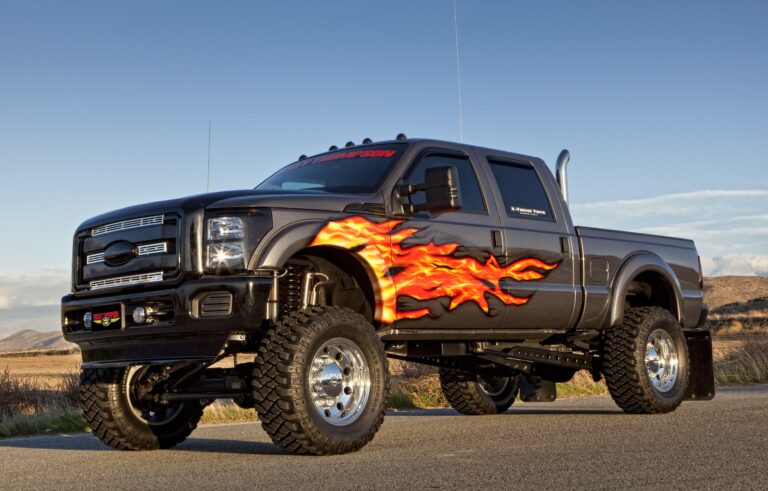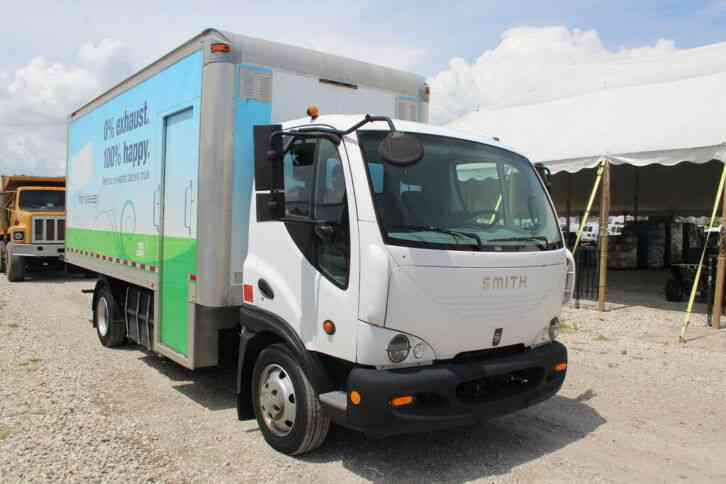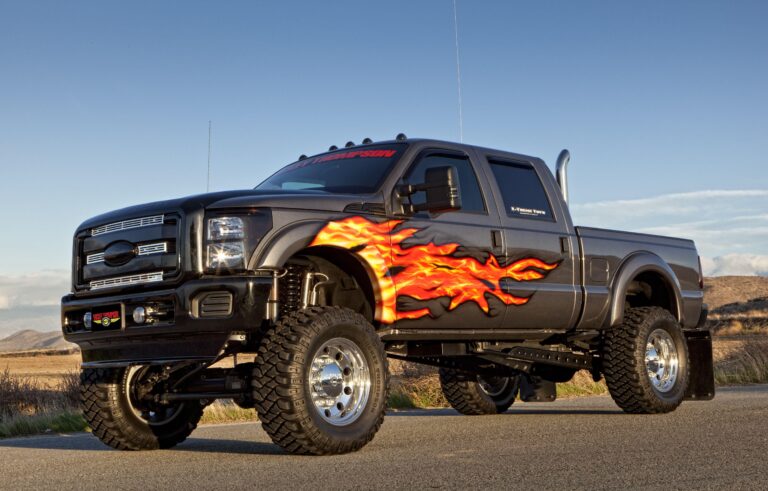1 Ton Dodge Trucks For Sale: Your Ultimate Guide to Heavy-Duty Hauling
1 Ton Dodge Trucks For Sale: Your Ultimate Guide to Heavy-Duty Hauling cars.truckstrend.com
In the world of heavy-duty vehicles, few names command as much respect and recognition as Dodge trucks. Specifically, the "1 Ton" Dodge, often badged as a 3500 series, stands as a testament to raw power, enduring durability, and unparalleled towing and hauling capabilities. These formidable machines are the workhorses of industries, the backbone for RV enthusiasts, and the reliable companion for anyone needing serious muscle. If you’re in the market for a truck that can handle virtually any task thrown its way, understanding the nuances of 1 Ton Dodge trucks for sale is your first crucial step. This comprehensive guide will navigate you through their history, benefits, what to look for, and where to find your next heavy-duty legend.
Understanding the "1 Ton" Rating
1 Ton Dodge Trucks For Sale: Your Ultimate Guide to Heavy-Duty Hauling
Before diving into specific models, it’s essential to clarify what "1 Ton" signifies in the truck world. Historically, it referred to a truck’s payload capacity – the maximum weight it could carry in its bed, including passengers and cargo. While the nomenclature persists, modern 1-ton trucks like the Dodge Ram 3500 typically boast payload capacities far exceeding 2,000 pounds (1 ton), often ranging from 3,000 to over 7,000 pounds, depending on configuration (single rear wheel vs. dual rear wheel, engine, 2WD/4WD).
These trucks are categorized by their Gross Vehicle Weight Rating (GVWR), which is the maximum permissible weight of the truck itself, plus its payload. For 1-ton trucks, this usually falls into Class 3 (10,001 to 14,000 lbs GVWR). This distinction sets them apart from their lighter 1/2-ton (1500) and 3/4-ton (2500) siblings, equipping them with stronger frames, heavier-duty suspension components, more robust axles, and often more powerful engine and transmission options designed for sustained heavy loads and towing.
Why Choose a 1 Ton Dodge Truck?
The appeal of a 1 Ton Dodge truck, especially in the used market, is multifaceted. They offer a compelling blend of power, utility, and value that’s hard to beat.
Power and Performance
At the heart of many sought-after 1 Ton Dodge trucks lies the legendary Cummins Turbo Diesel engine. Available in various iterations since 1989, the Cummins engine is renowned for its incredible torque, longevity, and fuel efficiency (for a truck of its size). While gasoline Hemi engines also offer substantial power, the Cummins diesel is the primary draw for serious towing and hauling. This raw power translates directly into effortless pulling of large trailers, from fifth-wheel RVs to heavy equipment haulers.
Unmatched Towing and Hauling Capability
This is where the 1 Ton Dodge truly shines. Designed from the ground up for extreme duty, these trucks often feature factory-installed provisions for gooseneck and fifth-wheel hitches, heavy-duty braking systems, and advanced cooling. Their robust chassis and suspension systems are engineered to manage substantial tongue weights and payload, making them ideal for commercial applications, large-scale recreational towing, or anyone who regularly moves significant weight.

Durability and Longevity
Dodge (now Ram) 3500 trucks are built tough. Their full-box frames, heavy-duty axles, and resilient powertrains are designed to withstand years of rigorous use. The longevity of the Cummins engine, in particular, is legendary, with many units exceeding 500,000 miles with proper maintenance. This inherent durability means a well-maintained used 1 Ton Dodge can continue to serve reliably for many years, offering an excellent return on investment.
Versatility
While primarily workhorses, 1 Ton Dodge trucks are surprisingly versatile. Beyond their core duties of towing and hauling, they can be configured for various uses. Many are used as daily drivers (though their size can be a challenge in urban environments), overland expedition vehicles (with modifications), or simply as robust personal vehicles for those who appreciate their capability and commanding presence.
Key Generations and Models to Look For
Dodge’s 1-ton truck lineage boasts several distinct generations, each with its own characteristics, strengths, and common considerations.
- First Generation (1989-1993 D/W350): These "First Gen" trucks are highly coveted, especially those equipped with the 5.9L 12-valve Cummins diesel. Known for their mechanical simplicity, ruggedness, and ease of modification, they are a favorite among enthusiasts. Their interiors are basic, and rust can be an issue, but the powertrain is incredibly robust.
- Second Generation (1994-2002 Ram 3500): This generation introduced the iconic "big rig" styling and continued with both 12-valve (up to ‘98.5) and 24-valve Cummins engines (from ‘98.5 onwards). The 24-valve brought more power but also introduced potential issues like the "53 block" (certain casting numbers prone to cracking) and VP44 injection pump failures. However, they remain immensely popular due to their strong aftermarket support and overall capability.
- Third Generation (2003-2009 Ram 3500): A significant redesign brought a more modern interior, improved ride quality, and the introduction of the Common Rail Cummins diesel. These engines offered quieter operation and more refined power delivery. Transmissions saw improvements, though the 48RE automatic still required diligent maintenance.
- Fourth Generation (2010-2018 Ram 3500): These trucks brought further refinements in styling, interior quality, and technology. The Cummins engine continued to evolve, offering increased horsepower and torque, paired with stronger automatic transmissions (like the 68RFE). They offer a more comfortable and modern driving experience while maintaining extreme capability.
- Fifth Generation (2019-Present Ram 3500): While newer and typically higher priced on the used market, these represent the pinnacle of Ram’s heavy-duty offerings, with massive towing capacities, luxurious interiors, and advanced technology.
What to Look For When Buying a Used 1 Ton Dodge
Purchasing a used 1 Ton Dodge requires careful consideration. These are not small, delicate vehicles, and their history often involves hard work.
- Engine Specifics:
- Cummins Diesel: Listen for unusual noises (knocks, excessive clatter), check for oil leaks, blow-by from the oil filler cap (indicates worn rings), and ensure proper cold starts. Request maintenance records, especially for fuel system components (injectors, pumps). For 2nd Gen 24-valve, check for the "53 block" stamp on the engine block.
- Hemi Gas: Check for common Hemi issues like lifter tick, MDS system problems, and spark plug condition.
- Transmission:
- Automatic: Test all gears, check for smooth shifts, and listen for slipping. Inspect fluid condition (should be red, not burnt). Pay attention to 47RE/48RE (2nd/3rd Gen) and 68RFE (3rd/4th Gen) common issues.
- Manual: Test clutch engagement, listen for grinding (syncro issues), and ensure smooth shifting.
- Chassis and Suspension: Inspect the frame thoroughly for rust, cracks, or signs of accident repair. Check for worn suspension components like ball joints, tie rods, leaf springs, and shocks. Excessive steering play can indicate worn steering linkage.
- Brakes: Ensure adequate pad and rotor thickness. Test for pulling or pulsing during braking.
- Drivetrain: If 4×4, test engagement of 4-high and 4-low. Check for clunks or vibrations from U-joints and driveshafts. Look for leaks around differentials.
- Interior and Electrical: Test all lights, gauges, HVAC, power windows, and locks. Check for water leaks, especially around the windshield and rear window.
- Maintenance Records: This is paramount. A well-documented service history, especially for fluid changes (oil, transmission, differential, coolant) and major component replacements, is a strong indicator of a well-cared-for truck.
- Pre-Purchase Inspection (PPI): Always, always, always get an independent mechanic specializing in heavy-duty trucks (or specific brands like Cummins) to perform a thorough PPI. This can uncover hidden issues and save you thousands in future repairs.
Where to Find 1 Ton Dodge Trucks For Sale
The market for used 1 Ton Dodge trucks is robust. Here are the best places to look:
- Online Marketplaces: Websites like AutoTrader, Cars.com, CarGurus, and specialized truck sites offer a wide selection. Don’t forget local platforms like Facebook Marketplace and Craigslist, which often feature private sellers.
- Dealerships: Used car dealerships, particularly those specializing in trucks or commercial vehicles, will have inventory. While potentially more expensive, they often offer financing and sometimes warranties.
- Auctions: Public and private auctions (including government surplus auctions) can yield good deals, but they come with higher risks as you often cannot thoroughly inspect the vehicle.
- Private Sellers: Buying directly from an owner can sometimes result in a better price and allow for more direct questions about the truck’s history.
- Specialized Forums and Groups: Online forums and social media groups dedicated to Dodge Ram trucks or Cummins diesels often have classified sections where enthusiasts sell their well-maintained vehicles.
Pricing Considerations and Market Trends
The price of a 1 Ton Dodge truck for sale can vary wildly based on several factors:
- Year and Generation: Newer trucks (4th and 5th Gen) command higher prices. Older, well-preserved 1st and 2nd Gen Cummins trucks can hold surprising value due to their legendary status and lower complexity.
- Engine Type: Cummins diesel models almost always fetch a significant premium over their gasoline counterparts.
- Mileage: Lower mileage generally means higher price, but for Cummins diesels, high mileage (200k+ miles) is not necessarily a deal-breaker if maintenance records are impeccable.
- Condition: Excellent cosmetic and mechanical condition will command top dollar.
- 2WD vs. 4WD: 4×4 models are generally more expensive and sought after.
- Trim Level and Features: Higher trim levels (e.g., Laramie, Longhorn) with more amenities will cost more than basic work truck trims.
- Modifications: Aftermarket modifications can either add or detract from value depending on their quality and relevance. Well-done performance upgrades on a Cummins might add value for an enthusiast, while poorly installed lift kits or questionable engine tunes can reduce it.
Market trends often see a steady demand for these trucks, especially the diesel variants, due to their enduring utility. The "Cummins premium" ensures that even older, high-mileage trucks maintain a strong resale value compared to many other vehicles.
1 Ton Dodge Trucks For Sale: Price Range & Key Considerations
| Generation/Years | Engine Options | Typical Price Range (USD) | Key Considerations |
|---|---|---|---|
| First Gen (1989-1993) | 5.9L 12-valve Cummins Diesel | $8,000 – $30,000+ | Mechanical simplicity, highly sought-after, strong aftermarket. Check for rust, basic interiors, potential KDP (Killer Dowel Pin) issue. High values for well-preserved, low-mileage examples. |
| Second Gen (1994-2002) | 5.9L 12-valve & 24-valve Cummins Diesel, V8/V10 Gas | $7,000 – $25,000 | Iconic styling, powerful. 24-valve: watch for "53 block" (certain years), VP44 injection pump issues. 12-valve still popular for simplicity. Check for transmission issues (47RE/48RE). |
| Third Gen (2003-2009) | 5.9L & 6.7L Common Rail Cummins Diesel, Hemi Gas | $10,000 – $30,000 | Improved ride/interior. 6.7L has emissions equipment (DPF, EGR) that can be problematic; check maintenance. 5.9L still a favorite. Automatic transmissions (48RE/68RFE) can have issues, check service history. |
| Fourth Gen (2010-2018) | 6.7L Cummins Diesel, Hemi Gas | $20,000 – $55,000+ | More refined, modern interiors, higher towing capacities. Continued evolution of 6.7L Cummins (check emissions system health). 68RFE automatic transmission generally more robust. Higher tech features. |
| Fifth Gen (2019-Present) | 6.7L Cummins Diesel, Hemi Gas | $40,000 – $80,000+ | Current generation, most capable and luxurious. Advanced safety features, massive towing. Primarily found at dealerships, higher price point due to newness. Lower depreciation than most new vehicles. |
Note: Prices are estimates and can vary significantly based on mileage, condition, specific configuration (SRW/DRW, 2WD/4WD), trim level, and regional market demand.
Conclusion
A 1 Ton Dodge truck for sale represents more than just a vehicle; it’s an investment in capability, reliability, and a legacy of heavy-duty performance. Whether you need a tireless workhorse for your business, a comfortable and powerful hauler for your recreational pursuits, or simply appreciate the robust engineering of a true heavy-duty truck, the 1 Ton Dodge Ram 3500 series stands ready. By understanding their unique characteristics, knowing what to inspect, and being strategic in your search, you can confidently find a truck that will serve you faithfully for years to come, proving that true power and utility never go out of style.
Frequently Asked Questions (FAQ) about 1 Ton Dodge Trucks For Sale
Q1: What does "1 ton" truly mean for a Dodge truck?
A1: Historically, "1 ton" referred to a truck’s payload capacity (2,000 lbs). For modern Dodge Ram 3500 trucks, it signifies a heavy-duty classification (Class 3 truck with GVWR typically 10,001-14,000 lbs) and a payload capacity that far exceeds 2,000 lbs, often ranging from 3,000 to over 7,000 lbs depending on configuration.
Q2: Are Cummins engines reliable in older Dodge 1-ton trucks?
A2: Yes, the Cummins Turbo Diesel engine is legendary for its reliability and longevity. With proper maintenance, many Cummins engines in 1st, 2nd, and 3rd Gen Dodge trucks are known to last for hundreds of thousands of miles, often exceeding 500,000 miles. However, like any engine, they require diligent maintenance.
Q3: What are common issues to watch out for in older Dodge 1-ton trucks?
A3: Common issues vary by generation:
- 1st Gen: Killer Dowel Pin (KDP) issue (fixable), rust, basic interiors.
- 2nd Gen: "53 block" (certain casting numbers can crack), VP44 injection pump failures (24-valve Cummins), automatic transmission (47RE/48RE) longevity issues, front end components (ball joints, steering linkage).
- 3rd Gen: Emissions system issues (6.7L Cummins – DPF/EGR), automatic transmission (48RE/68RFE) issues, front end components.
- General issues across generations can include rust on the frame and body, worn suspension components, and electrical quirks due to age.
Q4: Is a higher mileage Cummins a concern when buying a used 1-ton Dodge?
A4: Not necessarily. For a Cummins engine, mileage in the 200,000-300,000 mile range is often considered "broken in." The key is the maintenance history. A higher mileage truck with meticulous service records, especially for oil changes, fuel filters, and transmission services, is often a better buy than a lower mileage truck with an unknown or neglected history.
Q5: Can I use a 1-ton Dodge as a daily driver?
A5: While possible, it depends on your comfort level and driving environment. Their large size can make parking and navigating tight city streets challenging. Fuel economy, especially with the gas engines, will be lower than smaller vehicles. However, for those who regularly tow or haul, or simply prefer a commanding presence and robust capability, it can be a perfectly suitable daily driver.
Q6: How much can a 1-ton Dodge typically tow?
A6: Towing capacities vary significantly by year, engine, transmission, axle ratio, and configuration (single rear wheel vs. dual rear wheel, 2WD/4WD). Modern 4th and 5th Gen Ram 3500s with the High Output Cummins can tow over 35,000 pounds with a gooseneck/5th wheel hitch. Older generations will have lower, but still substantial, capacities, typically ranging from 10,000 to 20,000+ pounds. Always consult the specific truck’s door jamb sticker or owner’s manual for its exact towing limits.





